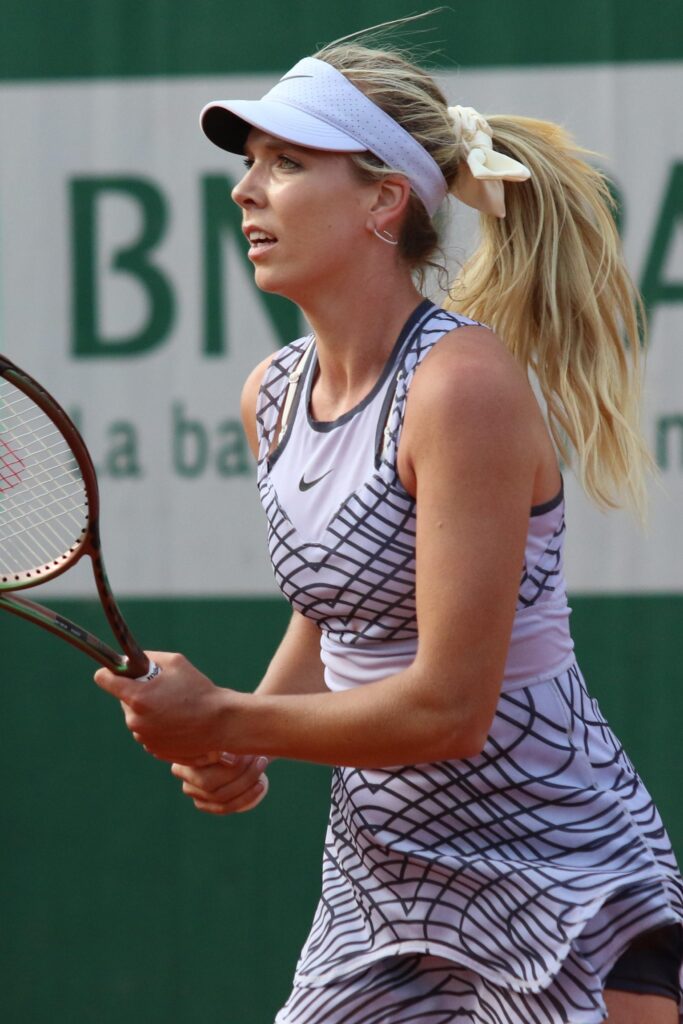British tennis player Katie Boulter has spoken out about the social media abuse she has faced, drawing attention to the darker side of online engagement for professional athletes. In a candid revelation shared with the BBC, Boulter detailed the personal impact of negative comments and highlighted the urgent need for greater protection and accountability on social media platforms. This disclosure comes amid ongoing discussions about mental health and online harassment in the world of sports.
Katie Boulter Opens Up About Online Harassment Impacting Her Career
Katie Boulter, a rising star in British tennis, has candidly spoken about the detrimental effects of online harassment on her professional journey. The 26-year-old athlete revealed that the constant barrage of abusive messages via social media has not only taken a toll on her mental health but also affected her performance on the court. She highlighted the challenges faced by sportspeople who are increasingly exposed to such negativity, emphasizing the urgent need for stronger protective measures within digital platforms.
Detailing her experience, Boulter mentioned specific instances where the abuse ranged from personal attacks to unwarranted criticism of her gameplay. She expressed frustration that despite her accomplishments, the online vitriol overshadowed much of her hard work. Below is an overview of the common types of online harassment she has encountered:
- Personal insults targeting appearance and character
- Threats and intimidation linked to social and political opinions
- Negative remarks about her athletic abilities and results
| Impact Area | Effect on Boulter |
|---|---|
| Performance | Decreased focus and confidence during matches |
| Mental Health | Increased anxiety and stress levels |
| Public Image | Misrepresentation and unfair public scrutiny |
The Rise of Social Media Abuse in Professional Tennis
The world of professional tennis has increasingly become a battleground not just on the courts but also on social media platforms. Katie Boulter, a rising British talent, has recently come forward to shed light on the disturbing pattern of online abuse directed at players. She revealed that hostile comments, threats, and derogatory messages have escalated in frequency and intensity, affecting her mental well-being and focus during competitions. This troubling trend reflects a broader issue within sports, where athletes are subjected to relentless criticism and harassment beyond their physical performance.
Experts and professionals stress that the emotional toll of such abuse cannot be ignored, underscoring the urgent need for stricter measures to protect players. The types of social media abuse reported include:
- Racial and sexist slurs aimed at undermining players’ identity
- Personal attacks questioning dedication and character
- Threats that result in safety concerns both on and off the court
| Type of Abuse | Impact on Player | Suggested Measures |
|---|---|---|
| Verbal Harassment | Emotional distress, anxiety | Stricter platform moderation |
| Threatening Messages | Safety risk, fear | Legal action & reporting systems |
| Persistent Negative Comments | Loss of confidence | Support programs & awareness campaigns |
Experts Advocate for Stronger Protections and Reporting Mechanisms
Leading figures in sports and digital safety are calling attention to the alarming rise in online harassment faced by athletes like Katie Boulter. They emphasize that current protections and reporting systems are insufficient to shield players from the harmful impact of social media abuse. Experts urge platforms to implement more robust filters and faster response protocols to promptly address and remove offensive content, arguing that the wellbeing of sports professionals must be prioritized.
Additionally, advocates propose a multi-faceted approach that involves:
- Mandatory transparency reports from social networks detailing abuse cases and outcomes
- Dedicated support services for victims, including counseling and legal advice
- Clearer communication channels between players, governing bodies, and platform moderators
| Key Expert Recommendations | Proposed Actions |
|---|---|
| Enhanced moderation | AI-powered detection and quicker response |
| Victim support | 24/7 helplines and counseling services |
| Transparency | Regular public abuse reports |
Calls for Increased Awareness and Support for Athletes Facing Cyberbullying
Prominent voices within the sporting community have intensified calls for more robust measures to safeguard athletes from the growing tide of cyberbullying. Katie Boulter’s candid revelation about the vitriolic social media abuse she has endured has reignited conversations about the mental health challenges faced by professional athletes. Advocates stress that social media platforms need to implement stricter monitoring algorithms and provide easier reporting tools to swiftly curb the spread of harmful content targeting sports figures.
Experts highlight the importance of comprehensive support systems that extend beyond digital intervention. These include:
- Dedicated mental health services tailored specifically for athletes
- Educational workshops to build resilience and coping mechanisms
- Collaboration between sports organizations and social networks to enforce anti-abuse policies
| Support Measure | Key Benefit | Example Initiative |
|---|---|---|
| 24/7 Helpline | Immediate emotional assistance | Sports Mental Health Alliance Hotline |
| Online Abuse Monitoring | Swift removal of harmful content | AI Moderation Tools on Social Platforms |
| Awareness Campaigns | Reduce stigma and educate fans | #RespectAthletes Movement |
Closing Remarks
Katie Boulter’s candid revelation about the social media abuse she has endured highlights the ongoing challenges faced by professional athletes in the digital age. As conversations around online harassment continue to grow, her experience underscores the need for stronger protections and greater awareness to foster a safer environment both on and off the court. The tennis community, fans, and platform providers alike are reminded of the imperative to combat abuse and support the well-being of players like Boulter who represent the sport at the highest level.





